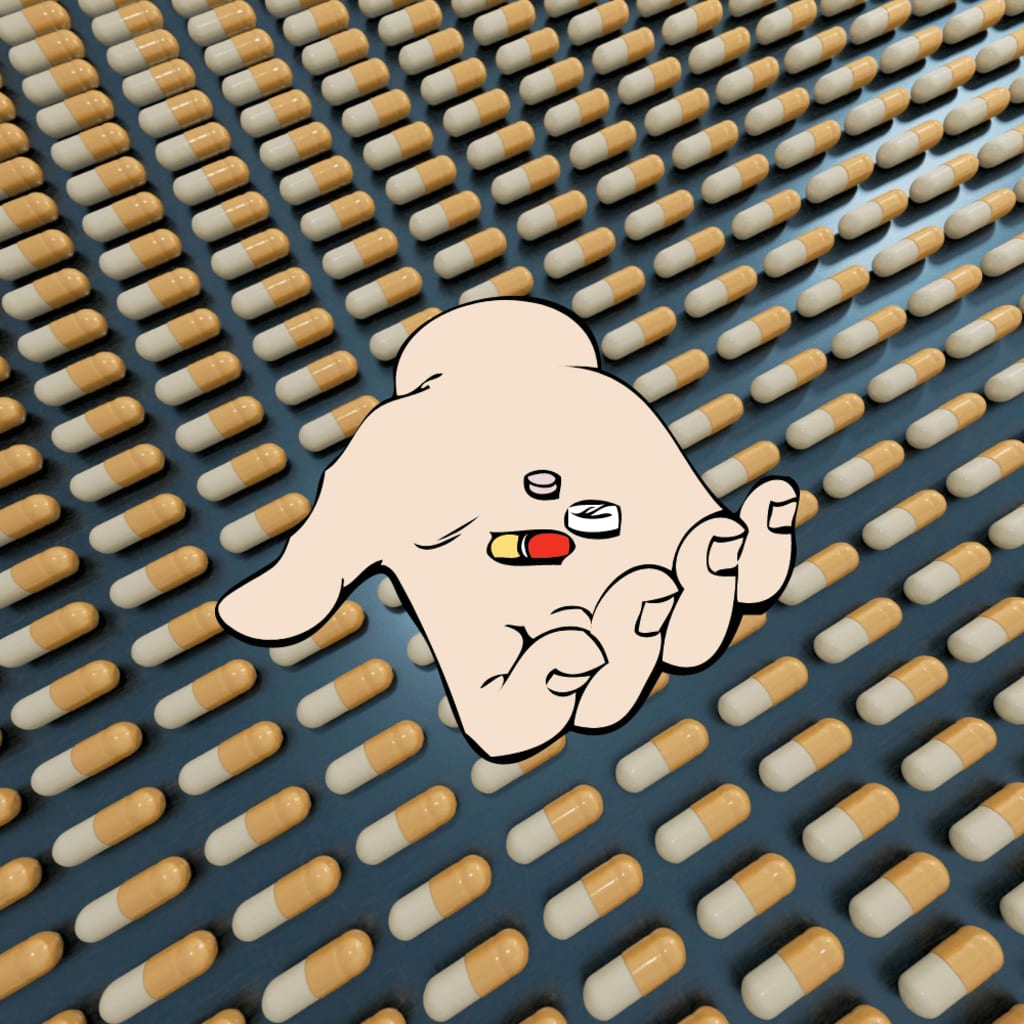Should You Medicate Your Child's Attention Disorder?
How I decided to put my child on - and then remove him from - ADHD medication

I knew something was wrong very early on.
He wasn't like the other children.
Other people had kids who sat still. They listened to their parents.
I turn around for 5 seconds, and my kid is on the ceiling. No idea how he got there, but he's 10-feet up and having the time of his life. Meanwhile, I'm dying inside.
I had to do something. Around his 5th birthday, I brought up the issue at a checkup. His doctor offered little help.
My oldest son, KJ, is turning 9 this year. He's a beautiful, bright child whose main interest in life is gaming.
He's so attached to his games because he has ADHD or Attention Deficit Hyperactive Disorder.
This disorder is also why his behavior was so wild and unpredictable in his early years. His mother and I didn't understand what was going on, and his pediatrician didn't help much.
It turns out, there's no objective test for ADHD, and the best he could do was confirm that he probably has it. He suggested the best confirmation is the child's reaction to a low dose of ADHD medication.
The problem was, he couldn't have it until he was 6 over a year away.
Everything's f*cked up, and I can't take it anymore.
I went into fatherhood, stating that I would never medicate my children.
I was medicated for ADHD around age 5 or 6. While I have no evidence, it may have contributed to my current substance abuse and mental health issues.
I was not going to allow my son to struggle the way I had my whole life.
I was ready to die on this hill.
The child broke me. At one point, I said to my wife:
"That's not my kid. That's not the KJ that I know and love. Something else has gotten into him and taken my baby and I'm never going to see him again."
What made me feel so strongly about my oldest baby?
- Spitting on teachers.
- Hitting adults.
- Hitting children.
- Spitting on children.
- Running. So much running. This kid would not stop running. He thought it was a game every single time. He nearly got hit by cars. He nearly got hit by shopping carts.
- He grabbed anything that grabbed his attention.
- Crayons in the wall.
- Crayons in the outlets.
- Drawings all over the walls.
- Holes in the walls.
- Electronics obsession.
- I won't do anything. Trying to get through a single page of preschool homework was like pulling teeth.
- Rules? What are those?
Consequences had no consequences.
This kid was redefining everything I thought I knew about parenting. I was a first-time parent, but I knew it wasn't supposed to be this hard.
Punishing him did absolutely nothing. He would saunter out of time-out and do the same thing that got him in trouble.
I needed to be saved from this child, or I was going to lose it.
My wife and I agreed to give him the medication.
Where it all went wrong
For a couple of years, everything was great. He was doing better socially, academically, and emotionally. He felt smarter and more like himself.
At home, he was sweeter and gentler. He was less prone to outbursts.
Eventually, he started having side-effects.
At first, he would nibble his fingers. Then he started thinking there were bumps on his skin. He would try and pop these bumps with a pencil in school, which led to him getting in trouble.
Then the hand biting worsened. He would scrape lines from his fingers to his wrist using his teeth. His poor hands looked like he was in a fight or something.
The school counselor called a meeting and acted all serious until I told him that this was a medication side-effect. He eased up, but I could tell he was still on edge.
It all became too much to bear, once again-this time in the opposite direction. I had a well-behaved kid that did well in school, but he was tearing his body to shreds.
My wife and I decided to take him off the medication.
The takeaway
My decision to medicate my son's ADHD was a very personal and subjective one. I went through hell with this kid, but I didn't want to hurt his brain with psychiatric meds so early.
At first, I considered that I had messed up somehow as a parent.
I considered that it possible medication wasn't right for this type of situation. I decided to go with the medication only after it was obvious that there was an actual problem.
You have to decide what works for your child. Make sure you loop your child in on what's happening with their health and allow them to have some input.
They may be young, but they know how they feel. I decided to stop, partially based on input from the patient himself.
These days we do okay without the meds.
There are stressful days where he doesn't want to listen or work. At the end of the day, it's forcing us to learn non-medication coping strategies.
That's what matters anyway. You won't always have pills to save you. Self-reliance is great when possible.
If your child struggles with an attention disorder, having an open mind can help you find the right path to go down. Talk with their doctor and see what you can do for your baby.
(I'm not a doctor, and this isn't medical advice.)
About the Creator
K. B. Hubbard
I write about life, positivity, parenting, and other stuff.






Comments
There are no comments for this story
Be the first to respond and start the conversation.